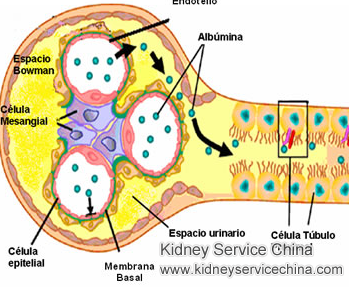Treatments to Control Protein Loss for Lupus Nephritis
 Lupus Nephritis is caused by Lupus, also called SLE, and it causes damage to glomeruli. When glomeruli can’t play their filtration function normally, protein will leak into the urine. Then, patients should take some treatments to control their protein loss.
Lupus Nephritis is caused by Lupus, also called SLE, and it causes damage to glomeruli. When glomeruli can’t play their filtration function normally, protein will leak into the urine. Then, patients should take some treatments to control their protein loss.
In clinic, Lupus Nephritis is the most typical autoimmune disorder in which various antibodies and antigens appear in the renal biopsy of these patients. Along with swelling, skin rash and high blood pressure, proteinuria or protein leakage is also one of most common symptoms of Lupus Nephritis. If uncontrolled effectively, protein leakage can trigger further kidney damage and makes glomerular condition worsen more easily.
In view of this, we give out several treatments that can help manage protein loss for Lupus Nephritis patients. If you want to know most effective treatments for yourself, you can leave a message below or email to kidneyservice@hotmail.com.
1. Eat foods rich in high-quality protein: If patients lose too much protein, they should eat some foods that can meet the body’s need and don’t cause extra burden on kidneys. High-quality protein contains abundant amino acids and produces less waste products. Therefore, patients should eat more of these foods but the total amount should be controlled.
2. Take some medications: Since protein leakage is caused by damaged glomerular structure, some medications such as ACEI, ARBs and steroids can inhibit the protein leakage for Lupus Nephritis patients. If you happen to have this problem, you should consult the doctor online to ask direct help.
3. Accept some systemic treatment: Immunotherapy is one therapy that is created for autoimmune disease. With six steps, it can remove the pathogenic factors and rescue the glomerular filtrating system effectively. Once glomeruli can filer blood normally, protein will be kept in the body and Lupus Nephritis can be controlled well.
Tag: Lupus Nephritis Symptoms Lupus Nephritis Lupus Nephritis Immunotherapy
previous:Regular Urinary Tract Infections for Lupus Nephritis Patients
next:How to Manage Irregular Periods for Lupus Nephritis Patients

